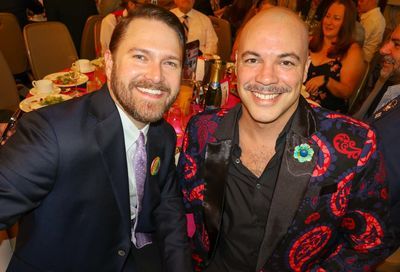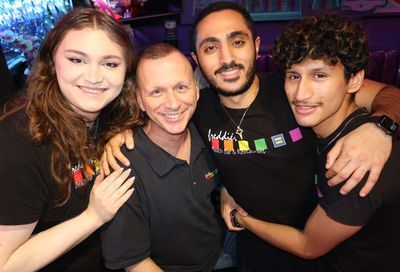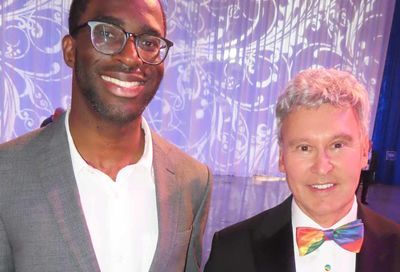‘Janet Planet’ is an Evocative and Heartfelt Wonder (Review)
"Janet Planet" captures the nuanced rhythms of everyday life through the eyes of a young girl in western Massachusetts.

For more than a decade, Annie Baker has been known in the theater world as a prolific author of plays that center the quotidian rhythms of daily life, often in New England. Baker’s 2013 play The Flick, about the employees of a decrepit old movie palace, won the Pulitzer Prize for Drama, though its length and stylistic quirks proved polarizing. In the New Yorker, Nathan Heller wrote that Baker “has pioneered a style of theatre made to seem as untheatrical as possible.”
That quality of ordinary life defines Janet Planet, Baker’s quietly remarkable debut as a filmmaker. It’s a drama of the everyday, wryly funny and defiantly small — the sort of movie where not much happens in terms of plot, but a whole lot happens in the inner world of the protagonist, a young girl named Lacy.
The drama unfurls over the course of summer 1991, as 11-year-old Lacy (Zoe Ziegler) navigates life in western Massachusetts with her mother, Janet (Julianne Nicholson), a free-spirited acupuncturist and single mom. It’s not billed as an autobiographical film, but like several other A24 masterpieces (notably, I Saw the TV Glow by Jane Schoenbrun and Lady Bird by Greta Gerwig, Baker’s sister-in-law), it’s a coming-of-age movie set in the era and locale in which the filmmaker grew up, which lends a vivid intimacy to the setting.
Lacy is precocious and socially isolated. “I don’t have any friends,” she casually tells a friend of her mother’s, who asks why. She shrugs: “It’s a complete mystery to me.” She and her mother share a complicated closeness, sometimes sleeping in the same bed.
When we first meet her, Lacy is at summer camp, furtively calling home from a payphone to say she’ll “kill myself if you don’t come get me.” Janet, accompanied by her boyfriend, Wayne, picks her up. Lacy has a “forthrightness” about her, as her mother euphemistically calls it — a tendency to speak her mind plainly and without filter.
When her piano teacher, a grandmotherly woman with Little Red Riding Hood dolls, praises her for practicing, Lacy corrects her: “Actually, I didn’t practice that much.” Baker’s dialogue is quietly funny and wrought with awkward pauses, conversation flowing at the pace of life.
The drama mainly unfolds in and around the family’s cozy, wood-paneled house. Baker’s oft-static camera revels in the little details: a plate of blintzes cooking in the microwave; a rotating fan breathing relief into the sticky-hot summer; the way the sunlight streams into the living room, bathing Lacy as she practices on her miniature keyboard. Non-diegetic music is kept to a minimum, as chirping birds and crickets summon the sound of a New England summer.
The film is novelistically split into three chapters, each named after an outsider who enters the family’s orbit for a period that summer.
The first section, “Wayne,” explores Lacy’s tense relationship with her mother’s boyfriend (Will Patton), a gruff man who suffers from migraines and coldly evades Lacy’s questions about why he doesn’t live with his daughter. Janet is the sort of mother who earnestly seeks her child’s relationship advice. When Lacy suggests she break up with Wayne, Janet does.
The second section, “Regina,” picks up after Lacy and her mother attend a bizarre interpretive dance performance (or “service,” as the leader calls it) by a theater troupe that resembles a cult. Afterward, Janet bonds with a British woman named Regina (Sophie Okonedo), a member of the troupe who is distraught following a break-up with the cult’s leader, Avi (Elias Koteas). Janet invites Regina to move in, rent-free, and Regina gamely promises to take Lacy on some adventures.
Regina’s open-hearted spirit proves a balm after Wayne’s surliness. She and Janet trade stories of their pasts in faux-therapy sessions; their remarkably rich monologues are the closest Baker’s screenplay comes to a flashback. But Lacy is somewhat marginalized by the two women’s closeness, and Regina’s critical nature chafes with Janet’s desire for self-forgiveness. Regina soon moves out.
The third and perhaps weakest chapter, “Avi,” concerns Janet’s brief dalliance with the charismatic leader of the theater troupe. Weakest because the film doesn’t make clear why Janet, a perceptive and intelligent character, would fall under the sway of Avi’s cultish mumbo-jumbo. But we do get a funny scene in which Janet and Lacy silently endure Avi’s meandering theories about the origin of the universe.
At its core, Janet Planet is about a child’s dawning recognition of her mother as a human, prone to flaws and misjudgments, and not an infallible authority. Maybe Avi’s intrusion into their tranquil space accelerates that recognition. His chapter, too, comes to a close as Lacy’s school year begins. As the film concludes, she is caught on some precipice between childhood and adolescence.
Watching Janet Planet, I wondered what it is about this story that demands to be told in film and not as a play. Perhaps it’s the stunningly rich sense of time and place. Baker captures an early ’90s summer with such vivid specificity, you can almost feel the humidity and smell the wood-paneled walls as Clarissa Explains It All emanates from the television.
The rural setting and gentle, naturalistic style recalls the ’90s and early 2000s works of indie filmmakers like Kelly Reichardt and Victor Nunez. In that tradition, Baker has excelled at making a small movie about big ideas.
Janet Planet (★★★★☆) is playing in select theaters nationwide, including locally at the Alamo Drafthouse DC Bryant Street at 630 Rhode Island Ave. NE. Visit www.drafthouse.com or www.fandango.com.
Support Metro Weekly’s Journalism
These are challenging times for news organizations. And yet it’s crucial we stay active and provide vital resources and information to both our local readers and the world. So won’t you please take a moment and consider supporting Metro Weekly with a membership? For as little as $5 a month, you can help ensure Metro Weekly magazine and MetroWeekly.com remain free, viable resources as we provide the best, most diverse, culturally-resonant LGBTQ coverage in both the D.C. region and around the world. Memberships come with exclusive perks and discounts, your own personal digital delivery of each week’s magazine (and an archive), access to our Member's Lounge when it launches this fall, and exclusive members-only items like Metro Weekly Membership Mugs and Tote Bags! Check out all our membership levels here and please join us today!























You must be logged in to post a comment.